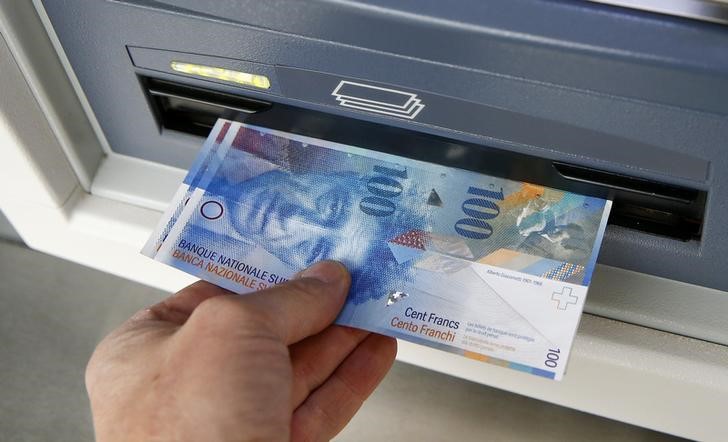(Bloomberg) -- Terms of Trade is a daily newsletter that untangles a world embroiled in trade wars. Sign up here.
Even after rallying to a two-year high, the Swiss franc may be far from levels that would prompt the central bank to act to curb exchange-rate strength, according to Standard Chartered (LON:STAN) Plc.
That’s because the currency’s exchange rate versus the euro -- once adjusted to inflation -- is about 10% weaker than current spot-market levels, according to strategists at the bank including Geoff Kendrick and Steve Englander. They write in a note to clients that the Swiss National Bank is therefore unlikely to cut interest rates at its Sept. 19 policy review, or resort to large-scale foreign-exchange intervention in the near future to weaken the franc.
Already termed “highly valued” by the SNB, the franc rallied about 3% against the euro this year as the Swiss currency’s haven appeal drew demand amid global economic risks. It touched 1.08115 per euro on Sept. 4, the strongest level since 2017. That has fueled some speculation about a possible rate cut and currency intervention by the SNB. The Swiss currency was around 1.0933 per euro Tuesday.
“The franc is not strong, in real terms,” the Standard Chartered (LON:STAN) analysts wrote. Adjusted for inflation, “in real terms the effective rate is now around 1.20. While intervention is tactically important for euro-franc direction, over the longer term it is less so. If the SNB wants euro-franc significantly higher, it should use its regulatory function to re-incentivize Swiss banks to take more risk.”
